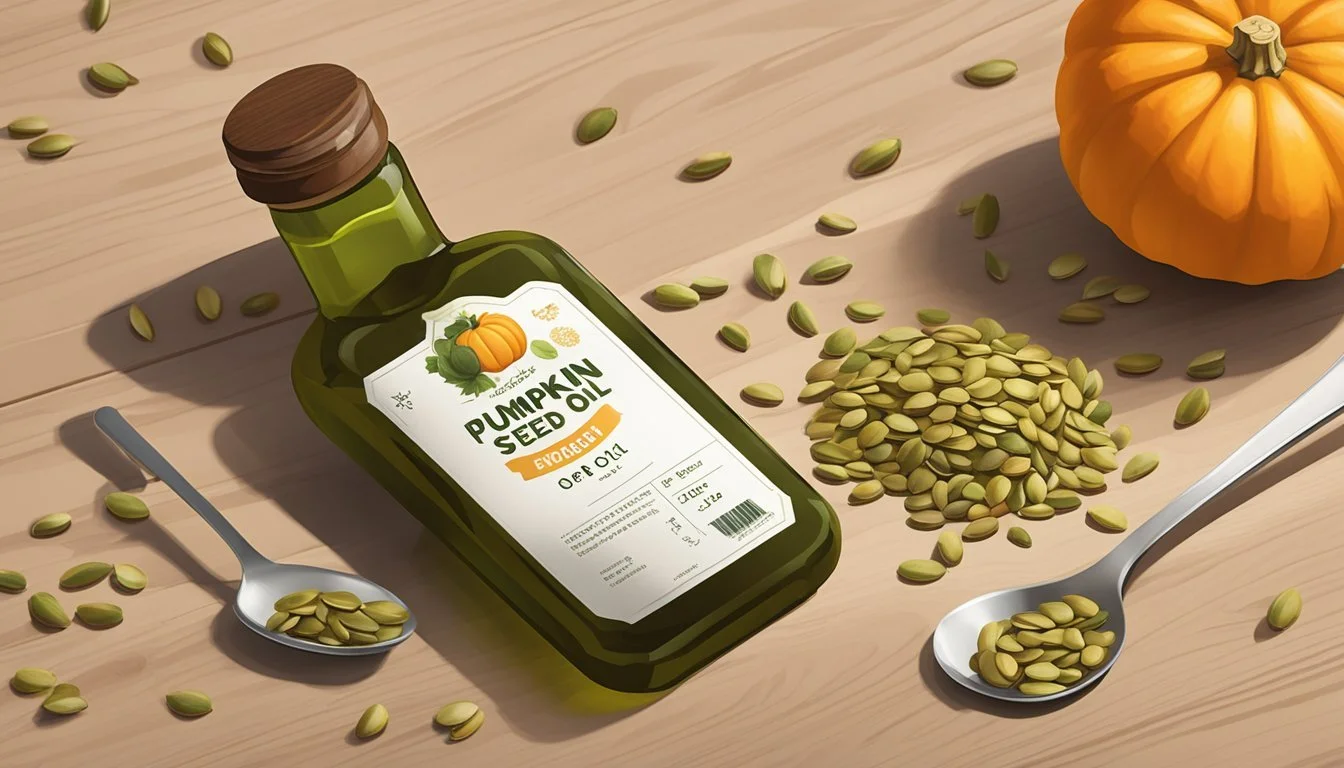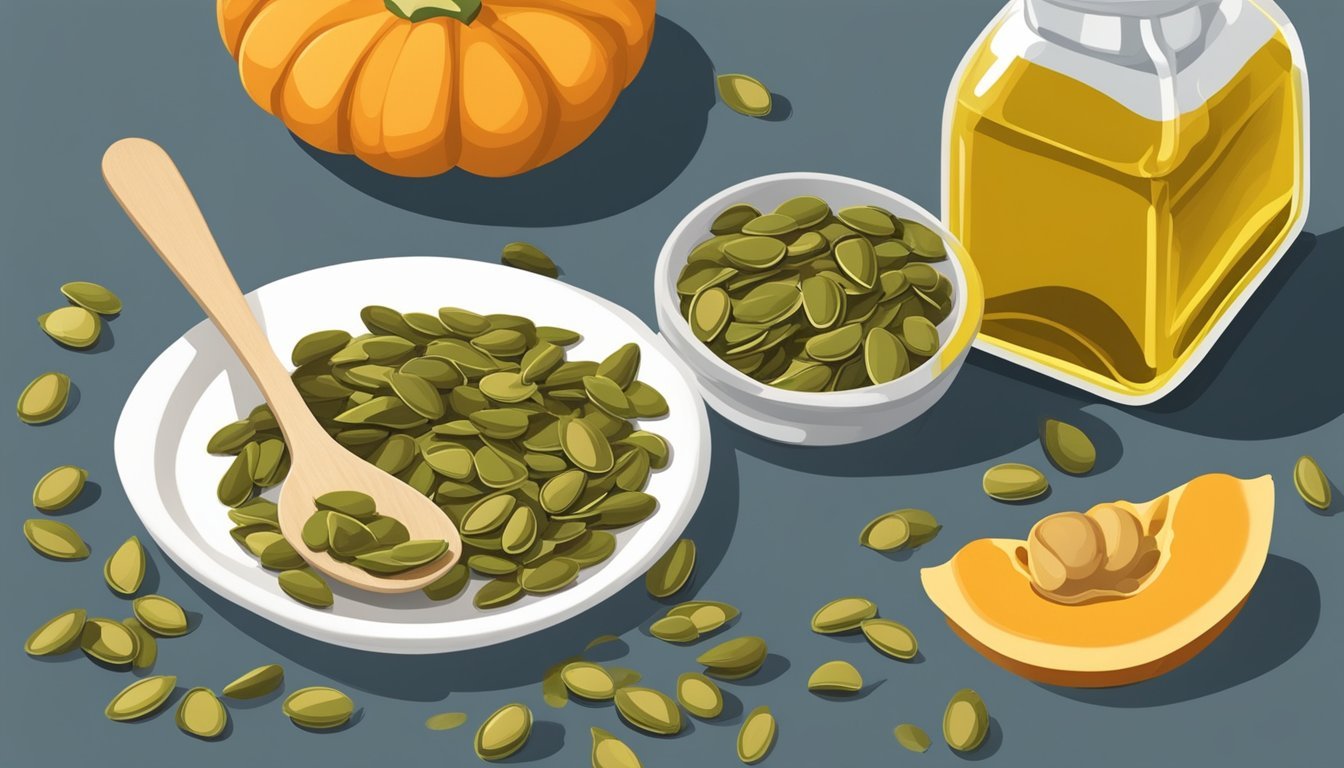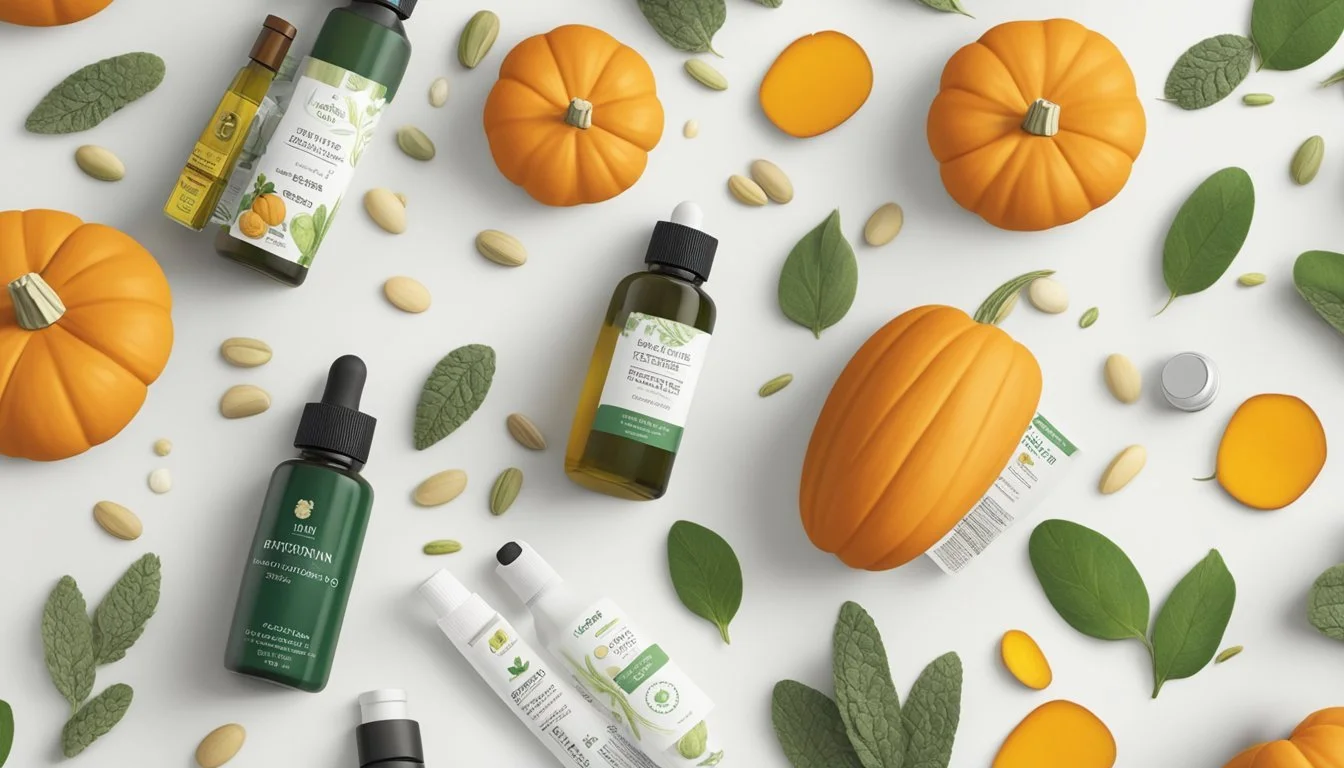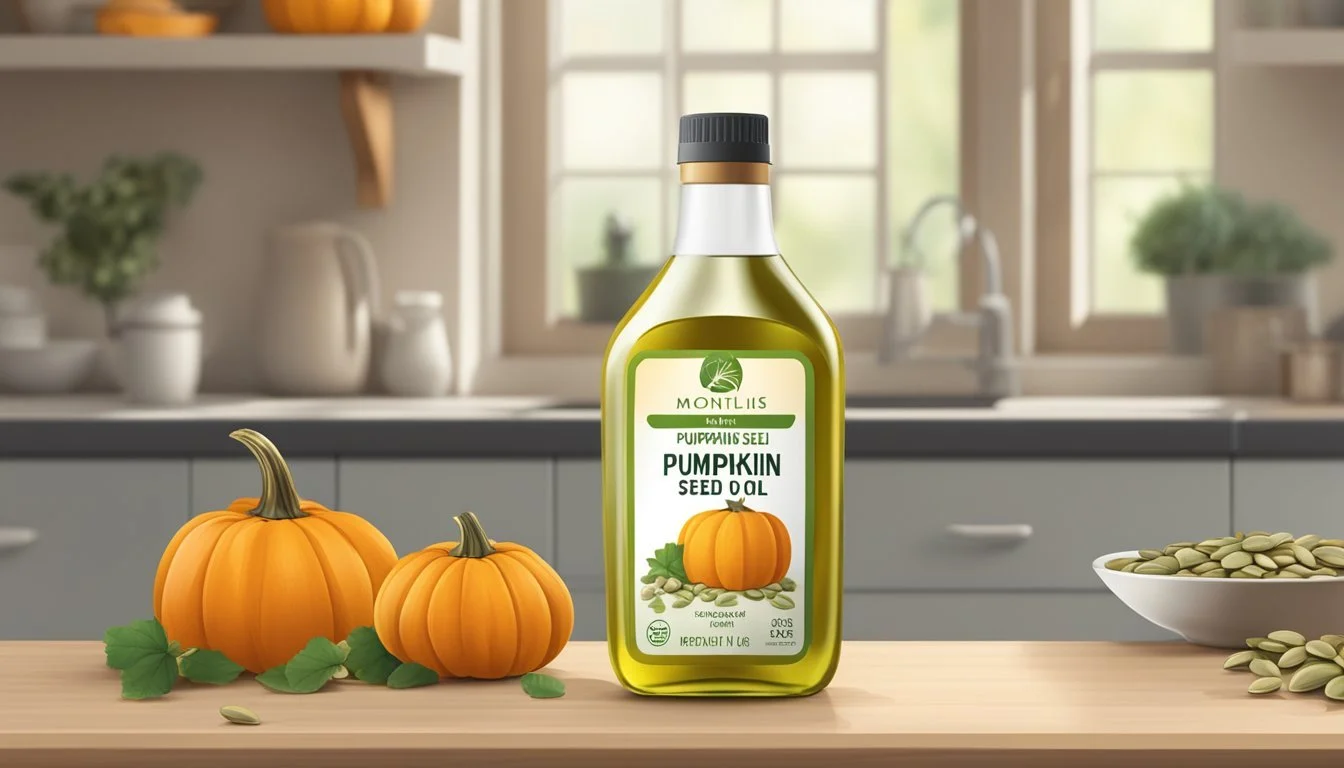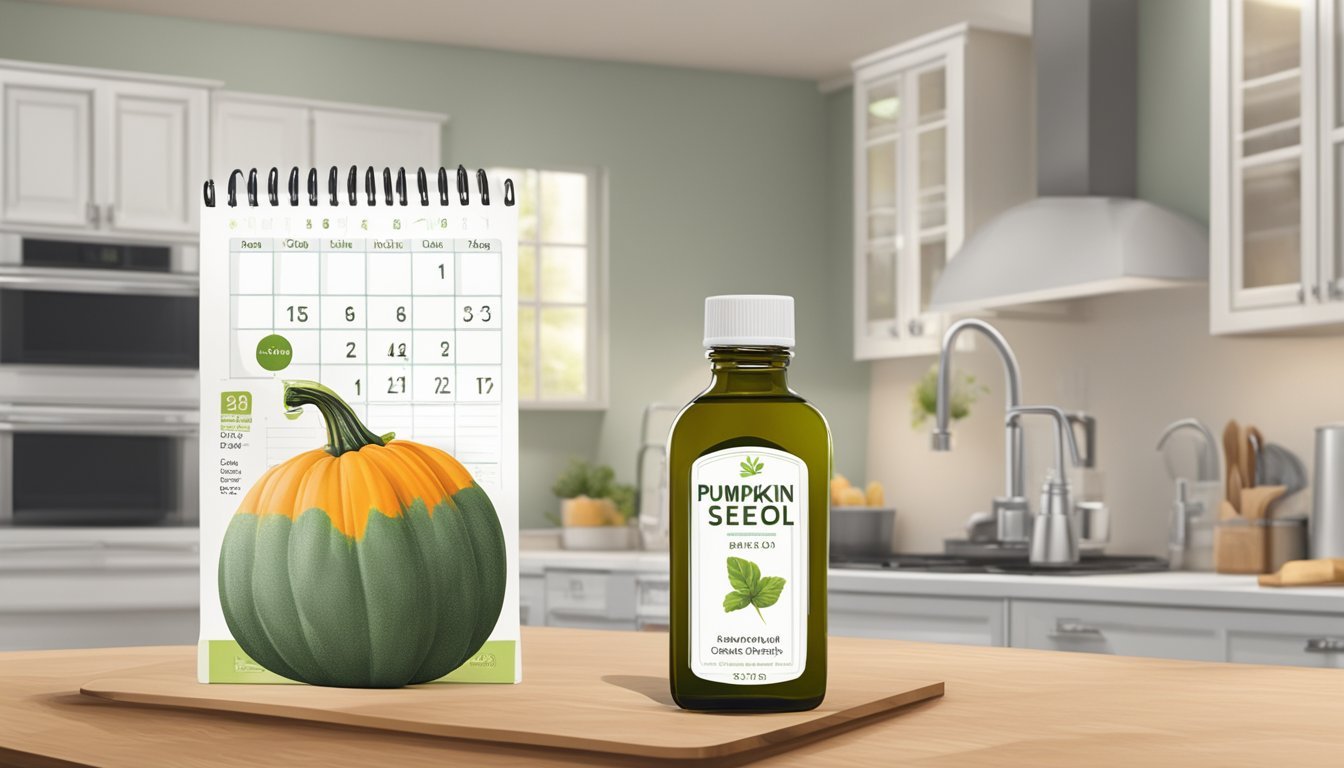How Long Does Pumpkin Seed Oil Last?
Shelf Life and Storage Tips
Pumpkin seed oil, extracted from the seeds of certain varieties of pumpkins, is highly regarded for its rich nutty taste and versatility in both cooking and health supplements. Often found in desserts, salad dressings, and used as a finishing oil for dishes, this oil is not just a kitchen staple for its flavor but also sought after for its potential health benefits. It contains nutrients that may be beneficial to the skin, urinary tract, and other areas of the body.
The shelf life of pumpkin seed oil is an essential aspect to consider to maintain its quality, flavor, and safety. Typically, unopened pumpkin seed oil can last for about 1 to 2 years if it is stored in a cool, dark place. Once opened, the shelf life decreases significantly and it's best used within a few months. The proper storage of pumpkin seed oil is crucial; it should be kept away from light and heat to preserve its freshness for as long as possible.
While unrefined pumpkin seed oil has a shorter shelf life due to its natural state, refined pumpkin seed oil may last longer as the refining process removes impurities and helps stabilize the oil. Regardless of the type, once the seal is broken, storing pumpkin seed oil in the refrigerator can extend its usefulness. Despite these measures, it’s important to note that like all edible oils, pumpkin seed oil will eventually degrade over time and its quality will diminish, underlining the importance of proper storage and timely usage.
Nutritional Profile of Pumpkin Seed Oil
Pumpkin seed oil is known for its rich fatty acid composition and nutrient content, providing a variety of health benefits. This section will detail the specific types of fats and the vitamins and nutrients that are found in pumpkin seed oil.
Fatty Acid Composition
Pumpkin seed oil contains a high level of unsaturated fats, which are considered heart-healthy. These fats are essential in the diet as the body does not produce them naturally. The oil is particularly rich in:
Polyunsaturated fats: Such as linoleic acid (omega-6 fatty acid)
Monounsaturated fats: Including oleic acid
The balance of fatty acids in pumpkin seed oil is tilted more towards unsaturated fats, making it a healthier choice in comparison to oils high in saturated fats.
Vitamins and Nutrients
Aside from fats, pumpkin seed oil is packed with various vitamins and nutrients that are crucial for maintaining good health. Below is a summarized list of these nutrients found in pumpkin seed oil:
Vitamins: It contains Vitamin E, which is a powerful antioxidant.
Minerals: Pumpkin seed oil provides a source of zinc, which supports immune function, and calcium, necessary for bone health.
Pumpkin seed oil's vitamin and mineral content alongside its beneficial fatty acids underscores its nutritional value.
Health Benefits and Uses
Pumpkin seed oil is recognized for its range of health benefits, from supporting cardiovascular health to maintaining healthy urinary functions. It is also used for enhancing hair and skin quality, offering anti-inflammatory and antioxidant properties, providing menopause relief, and contributing to mental wellness.
Heart Health
Pumpkin seed oil may contribute to heart health by aiding in the maintenance of healthy blood pressure levels and supporting balanced cholesterol profiles. The oil contains compounds that are believed to have a positive impact on the cardiovascular system, potentially reducing the risk of heart disease.
Urinary Tract Health
Individuals with overactive bladder may find that pumpkin seed oil helps in alleviating symptoms. This benefit is attributed to the oil's ability to support the health of the urinary tract and its potential to improve bladder function.
Hair and Skin Benefits
Pumpkin seed oil is often used to improve the health and appearance of hair and skin, thanks to its rich composition of nutrients. There is evidence suggesting that the oil can promote hair growth and skin rejuvenation, possibly owing to its content of fatty acids and antioxidants.
Anti-Inflammatory and Antioxidant Effects
The oil is high in antioxidant compounds, which may defend against inflammation and oxidative stress. This antioxidative activity contributes to the prevention of chronic diseases and helps in managing inflammatory conditions.
Women's Health
For women, especially those navigating the transition into menopause, pumpkin seed oil might offer relief from symptoms such as hot flashes. Its phytoestrogen content could be responsible for these possible health benefits.
Mental Wellness
Though more research is warranted, there have been suggestions that pumpkin seed oil could have a role in improving mental wellness. Its nutrient profile may support better mood and cognitive function, which could be beneficial in managing depression.
Pumpkin Seed Oil in Cooking
Pumpkin seed oil is a versatile ingredient in the culinary world, known for its nutty flavor and rich color. It is prized both for its taste and for its health benefits when used in various dishes, especially salads and dressing.
Culinary Applications
In the kitchen, pumpkin seed oil is predominantly used as a finishing oil rather than a cooking oil due to its low smoke point. It imparts a characteristic nutty flavor and is most suitable for:
Salads: Incorporating pumpkin seed oil into salad dressings enhances the taste with its rich and nutty aroma.
Cold dishes: It serves as a flavorful addition without the need for heating, maintaining its nutritional integrity.
Marinades: Pumpkin seed oil can be used in marinades to infuse a unique flavor into meats and vegetables.
Note: It's advisable to refrain from using pumpkin seed oil for high-heat cooking methods such as frying or sautéing.
Taste and Aroma
When describing the taste and aroma of pumpkin seed oil, one can expect:
Taste: A distinct, robust, and nutty flavor that complements a variety of foods.
Aroma: An appealing, slightly roasted nut aroma that is especially noticeable when oil is used fresh or as a dressing.
Its nutty taste makes it a gourmet choice for enriching the flavor of roasted vegetables and other warm dishes or components.
Storage and Stability
Pumpkin seed oil's shelf life and quality are significantly influenced by storage:
Unopened: When stored in a cool, dark place, it can last approximately 1-2 years.
Opened: In the pantry, an open bottle will last around 2-3 months, while refrigerated it can last up to 6-12 months.
To ensure stability and maintain the integrity of the oil:
Avoid direct sunlight and store in dark bottles, when possible.
Refrigerate after opening to extend its shelf life.
Considering storage conditions is crucial for preserving the delicate taste and color of the pumpkin seed oil.
The Shelf Life of Pumpkin Seed Oil
When assessing pumpkin seed oil's shelf life, consider both its tendency to spoil over time and the importance of storage conditions. Factors including exposure to heat and light, as well as whether the bottle is open or sealed, play a crucial role in determining the oil’s longevity.
Factors Influencing Shelf Life
Exposure to Light and Heat: Direct sunlight and heat sources can accelerate the oxidation process, leading to rancidity.
Aroma and Flavor Degradation: As the oil ages, especially if improperly stored, its distinctive aroma and flavor can diminish.
Quality of the Oil: High-quality oils with more antioxidants may last longer, resisting spoilage due to their natural preservation qualities.
Open vs. Sealed Bottles: The shelf life of pumpkin seed oil can significantly reduce once the container has been opened.
Storage Recommendations
Avoid Direct Sunlight: Store the oil in a dark place away from any direct sunlight to mitigate the risk of spoiling or acquiring a bitter taste.
Room Temperature vs. Refrigeration: Keeping the oil at room temperature in a pantry may result in a shelf life of about 2–3 months once opened. Refrigeration could extend its life up to 6–12 months.
Expiration Date: Always take note of the expiration date provided by the manufacturer, as it offers the most accurate guideline for how long the oil should maintain its quality.
Airtight Containers: For unopened pumpkin seed oil, ensure it is sealed tightly in its original container, away from oxidation-promoting elements.
Using Pumpkin Seed Oil as a Supplement
Pumpkin seed oil is a popular supplement known for its potential to support urinary tract health and reduce symptoms of benign prostatic hyperplasia. Credited with an array of health benefits, proper dosage and awareness of possible side effects are essential for safe supplementation.
Supplemental Benefits
Pumpkin seed oil supplements are rich in phytosterols and phytoestrogens, compounds that may contribute to lowering blood pressure and cholesterol levels. These supplements are particularly noted for their oleic acid content, a type of healthy fat. Research suggests that they could help with:
Reducing symptoms of an enlarged prostate (benign prostatic hyperplasia or BPH)
Maintaining urinary tract health
Historically, they have also been compared to palmetto oil, another supplement used for prostate health.
Potential Side Effects
While pumpkin seed oil is generally considered safe, it can cause side effects in some individuals. Potential side effects include:
Stomach upset
Headache
Skin reactions
Experts recommend consulting with a doctor before beginning any new supplement regimen, especially if you are taking other medications or have underlying health issues.
Dosage and Administration
The dosage of pumpkin seed oil can vary widely based on the intended use and the individual's health status. Commonly, manufacturers recommend:
Supplement form: 1-2 capsules daily
Oil form: 1 teaspoon per day
However, it's crucial to follow the administration guidelines provided by the specific product or a healthcare professional. Dosages should not be adjusted without medical advice.
Pumpkin Seed Oil in Cosmetic and Alternative Medicine
Pumpkin seed oil is recognized for its rich nutrient profile, often harnessed in cosmetic products for skin and hair care, and as a natural remedy within alternative medicine practices.
Skin and Cosmetic Applications
Pumpkin seed oil's utility in the cosmetic industry largely stems from its hydrating and antioxidant properties. It is rich in vitamins, zinc, antioxidants, and fatty acids, which together:
Hydrate: The oil's fatty acids help moisturize and maintain skin's hydration.
Fight free radicals: Antioxidants in the oil can help neutralize free radical damage.
Support skin health: Zinc and vitamins aid in maintaining clear skin and may play a role in reducing acne.
Slow aging signs: Antioxidants and fatty acids are believed to contribute to reduced visibility of skin aging signs.
Pumpkin seed oil can be directly applied to the skin or integrated into various skincare products.
Alternative Medical Uses
In alternative medicine, pumpkin seed oil is showcased for its potential to support urinary health and improve quality of life. It contains healthy fats, including omega-3 and omega-6 fatty acids, and nutrients known to benefit overall well-being. Here are specific uses:
Urinary Health: Some studies suggest that pumpkin seed oil might improve symptoms of overactive bladder.
Nutritional Supplement: It serves as a natural source of essential nutrients which can be added to smoothies or as a finishing oil in culinary dishes.
Pumpkin seed oil is available for purchase in health stores and online, and one can often find professional guidance from a registered dietitian or health professionals regarding its use in supplementing a healthy diet.
Purchasing Pumpkin Seed Oil
When seeking to purchase pumpkin seed oil, consumers should consider its availability and the various forms it comes in, as well as apply certain selection tips to ensure quality.
Availability and Forms
Pumpkin seed oil is widely available both online and at various health stores. It typically comes in the following forms:
Bottled Liquid Oil: The most common form, ideal for culinary use or as a dietary supplement.
Capsules: A convenient option for those seeking the health benefits without the taste.
Shoppers can find pumpkin seed oil in organic, cold-pressed, or refined variants, and it's also offered by some brands as a blend with other oils to cater to specific health needs.
Selection Tips
When selecting pumpkin seed oil, consumers should look for:
Quality Indicators: Labels such as "organic," "cold-pressed," or "unrefined" generally signify a higher-quality product. Cold-pressed oils, in particular, retain more nutrients.
Packaging: Dark bottles or tins can protect the oil from light, which helps preserve its quality.
Shelf Life: Check the expiration date to ensure freshness; a newer bottle will usually last longer.
By focusing on these aspects, buyers can make an informed purchase, securing an oil that suits their dietary needs and culinary uses.
Frequently Asked Questions
Understanding the shelf life and proper storage of pumpkin seed oil is essential for maintaining its quality and safety. Here, we address common concerns and expert advice on the matter.
Common Concerns
Shelf Life: Unopened pumpkin seed oil typically lasts 1 to 2 years if stored in a cool, dark place. Once opened, it should be used within 2-3 months when kept at room temperature, or 6-12 months in the refrigerator to ensure its freshness.
Storage: To preserve its quality, pumpkin seed oil should be stored away from light and heat. Refrigeration can extend its shelf life. It's important to check the oil's expiration date and observe any changes in aroma, flavor, and appearance as indicators of spoilage.
Expert Advice
Dosage: When used as a supplement, pumpkin seed oil often comes in 1,000 milligram dosages. As a food, a common serving is 1 tablespoon. Consumers should follow the recommended dosage on the product's label or consult a healthcare provider.
Side Effects: While the oil is generally safe, individuals with pumpkin seed allergies should avoid it.
Health Benefits: Experts suggest pumpkin seed oil may support urinary tract and heart health due to its nutrient composition, potentially aiding in reducing cholesterol levels. However, one should consult a doctor or a registered dietitian before using pumpkin seed oil for any health-related purpose.
Conclusion
Pumpkin seed oil is typically shelf-stable for about 1 to 2 years when kept in a cool, dark place, and these conditions are crucial to preserve its quality. After opening, pumpkin seed oil should ideally be used within 2 to 3 months if stored in a pantry or extended to 6 to 12 months when refrigerated. Its storage life is of particular interest to consumers who wish to leverage its health benefits, such as its content of fatty acids, without the risk of spoilage.
The nutritious oil, recognized for its high concentration of fatty acids like oleic and linoleic acids, should be monitored for signs of rancidity. Users may experience a noticeable change in flavor or aroma, indicating that the oil should no longer be consumed. It's essential to store the oil properly to maintain the integrity of its bioactive components.
In conclusion, when using pumpkin seed oil for its culinary uses or pursuing its health benefits, one should adhere to recommended storage practices to ensure optimal freshness and efficacy.


